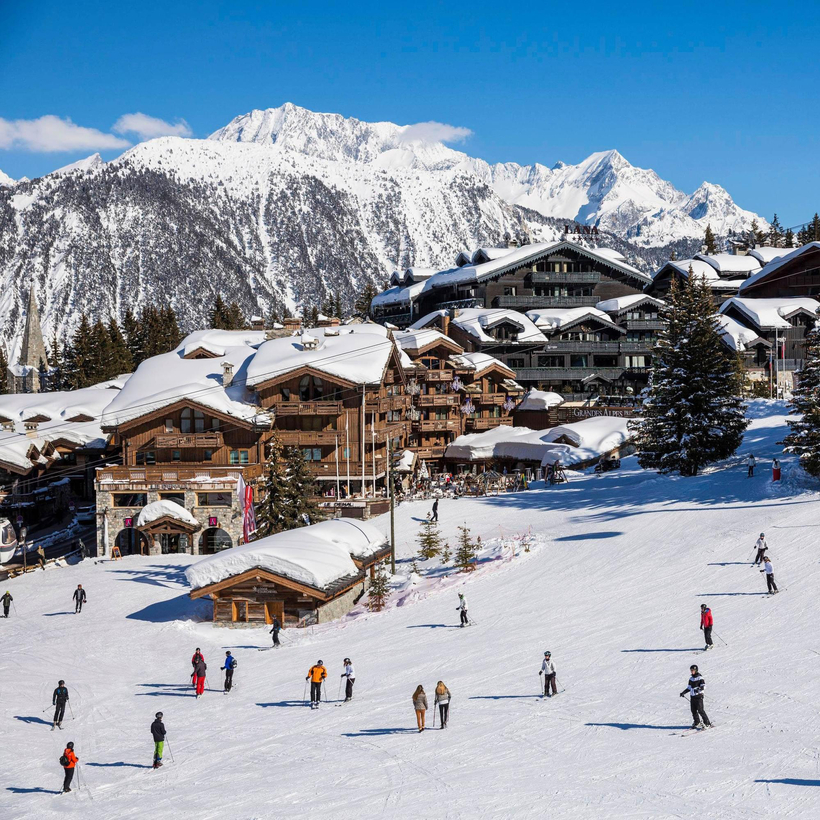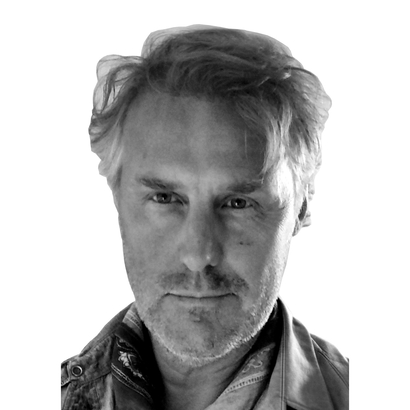In 2023, Sheikh Hamdan bin Mohammed bin Rashid al Maktoum, the crown prince of Dubai (and “Fazza” to his friends), left the 100-degree heat of the United Arab Emirates and headed for the minus-10 chill of the French Alps.
A post on the sheikh’s Instagram feed showed his 16.8 million followers idyllic images of whiteout blizzards, blue-sky peaks, immaculately groomed pistes, and sleigh rides.
His resort of choice? Courchevel. In 2022, more than 16 percent of its international visitors are predicted to come from the Middle East, including around 10.5 percent from the U.A.E. and 2.7 percent from Saudi Arabia. And that number is even higher now.

They gravitate here because of the resort’s high-touch service, reputation for shiny excess, and familiar hotel brands such as Aman and Six Senses, whose sky-high prices deter the non-rich.
SV Edition Range Rovers, garishly painted Hummers, and Rolls-Royce Cullinan S.U.V.’s go bumper to bumper on its streets, which are lined with more than 40 designer boutiques, such as Fendi, Louis Vuitton, Brunello Cuccinelli, Gucci, and Prada. Aside from Paris, Courchevel has more five-star “palace-rated” hotels—an honor designated by the French minister of tourism—than any other place in the country. There are also 13 Michelin-starred restaurants.
Brand Courchevel is such a hit with the Saudis that they even have their own version back home: the fiberglass-and-fake-snow mountains of the “Courchevel zone” are the big attraction at Riyadh’s Boulevard World theme park.

But getting there is not a chore. For those who don’t fly privately or who simply hate helicopters, there are commercial-airline connections from Geneva, Milan, and Paris. (Courchevel’s airport has the world’s shortest runway—just 1,762 feet—and the highest-altitude tarmac in Europe, so it’s not for the faint of stomach.)
Land your plane, clip into your boots, and ski straight down a red run for lunch at La Casserole.
It wasn’t all that long ago that oligarchs and Muscovite industrialists owned this town. The busiest part of the season was the first half of January, during Orthodox Christmas and Russian New Year.
Alexia Laine, managing director of Courchevel Tourism, says that after the French and English, visitors from the Persian Gulf have displaced the Russians to comprise the third-largest group. They do things differently, too, gravitating mostly to convenient shopping and eating facilities and avoiding the dizzying and exhausting task of exploring snowy mountaintops all day.

Their new rituals have confused and delighted Courchevel’s hoteliers. “A few seasons back, everyone would be skiing all day, so our restaurant would be empty for lunch,” one told me during my December visit. “Now we are full.”
It wasn’t all that long ago that oligarchs and Muscovite industrialists owned this town.
Alcohol sales are down, he says, but pastries are booming. The Russian penchant for cocaine and champagne has been replaced with one for lavish amounts of confectionery. At Courchevel 1850’s popular pastry shops, French pâtisserie standards are displayed next to Bedouin-style doughnuts.
In my conversations with service workers, an archetype of the Courchevel Visitor of 2025 has emerged. They tend to rise late, enjoy a leisurely sweet breakfast, perhaps ski a bit (with a guide), and return to the hotel for a long lunch.
Or perhaps some house-hunting? Chalet La Datcha, a six-story home in Courchevel 1850, is owned by the billionaire Oleg Tinkov, whom the I.R.S. recently fined $500 million for tax fraud. Awash in gold leaf, including on the chandeliers, its features include an ice fountain and hot tub. And it can be yours during the Russian Christmas holiday for a cool $145,000 per week.
Around three p.m., the shopping begins; a self-proclaimed “Saudi Stylist” named Yara AlMosaad is frequently consulted for advice. Which will be … lots of labels. Moon Boots are an essential, as are demure, Bond girl–ish ski looks by Moncler, Fendi, Louis Vuitton, and Loro Piana. At the fashionable Loulou restaurant, off the pretty Bellecôte run, staff will be on their knees, exchanging guests’ ski boots for sheepskin mules, Cinderella-style, as they eat and scroll.
After shopping, it’s more tea and cake at the swanky hotel (or at a different swanky hotel), a treatment in its spa, and back to the room to get ready for an early dinner. The women usually return to their rooms before 10 p.m., and then the men—dressed like fur-trimmed tech bros—hit the bars.
It’s a dramatic change from the Russians, who tended to ski hard and play even harder. Where did they all go—gradually, and then suddenly? In 2007, French authorities investigated a human-trafficking-and-prostitution ring that was allegedly shuttling young women from Russia to Courchevel. The Russian billionaire Mikhail Prokhorov was arrested at the resort, and while he was later released without charge, the ugly incident soured the Russians’ already damaged reputations.
One former British resident recalls an epidemic of rudeness, line jumping at the lifts, and three-quarters-full magnums of Pétrus wine left on tabletops after lunch.
During Courchevel’s Russian period, he says, “things began to get out of control when the price of risotto at Le Mangeoire crept up to 75 euros. When a mountainside bar charged 60 euros for a shot of tequila, I decided I was out.”
When the pandemic hit, in 2020, the value of the ruble tumbled. It also didn’t help that Russia’s Sputnik V vaccine wasn’t recognized by the French government.
When Russia invaded Ukraine, in 2022, Courchevel experienced an even deeper vibe shift. In March of that year, the Russian Federation’s tri-color flag was lowered on the Croisette, Courchevel’s main street. Bars and restaurants stopped printing their menus in Russian.
Then, in 2023, there was Vladimir Putin’s request-slash-demand that all decent and patriotic Soviet billionaires should forsake winters in Kushevelevo (“Courchevelski”) for the shiny Olympic city of Sochi, on the Black Sea.
So what do the locals think about all this? “The Saudi men have prostitutes also,” my Courchevel-born ski guide told me with a shrug during a lift ride. “But they are nicer than the ones the Russian men had.”
Meanwhile, there’s never been a better time to ski the resort’s thrilling, challenging trails. For the first time in recent memory, there was no cutting in the lift lines. In fact, there were hardly any lines at all.
Simon Mills is an editor at Wallpaper and a writer at The Times of London


